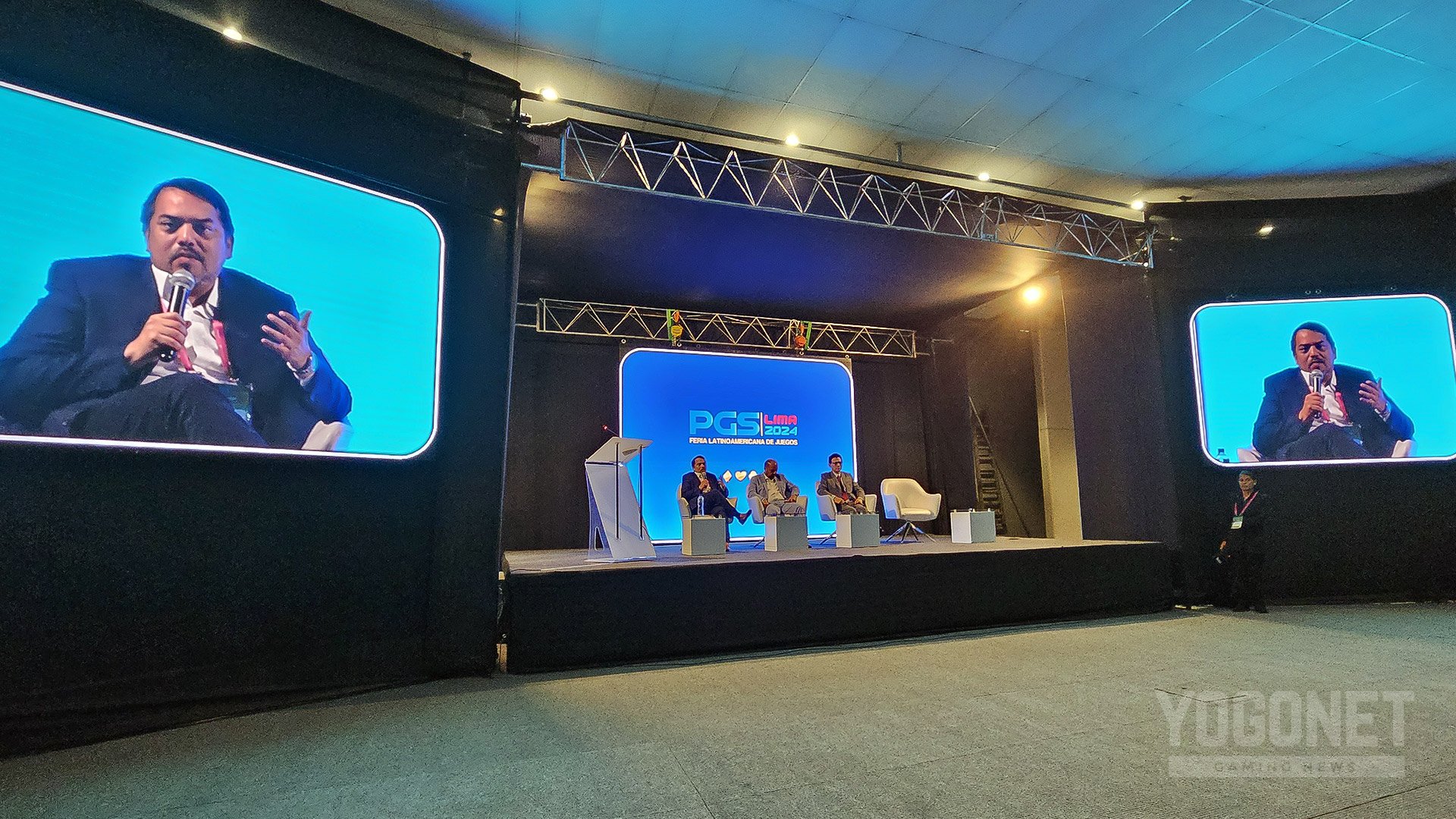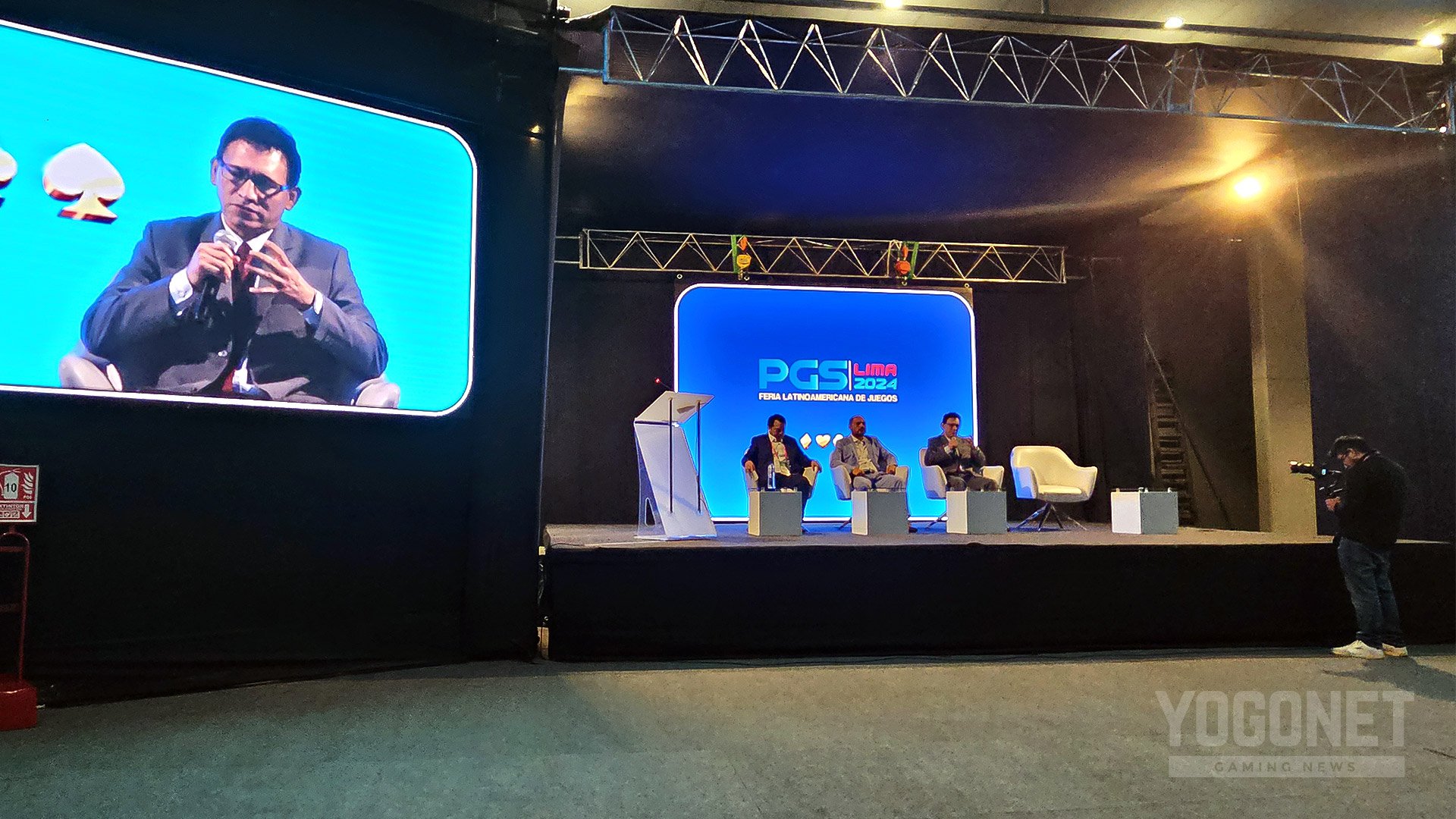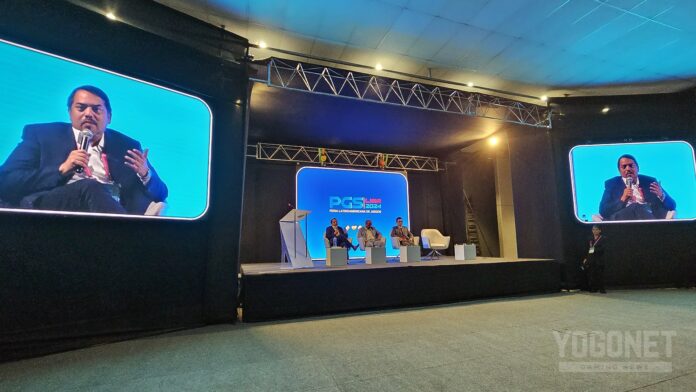The last day of the Peru Gaming Show (PGS 2024) was the scenario for a panel that gathered the general director of Casino Games and Slot Machines, Yuri Guerra, and the CEO of Apuesta Total, Gonzalo Pérez, to discuss the challenges and opportunities of the regularization process of the online sector in Peru.
During the dialogue, moderated by lawyer Carlos Fonseca, the Peruvian regulator and the executive agreed that the regulatory framework that regulates iGaming in the country – which came into force this 2024 – was the result of a collaborative and joint work of the public and private sectors.
“We are committed to continue working hand in hand with you, that is the guarantee we give, as regulator and as State, to investors. […] We are working hand in hand with you, the private sector and the public sector, because we are strategic partners for the real benefit of society,” Guerra stated.
He added that the regulatory agency he heads will continue to open “work and dialogue roundtables to generate clear rules and regulations for all.”

For his part, Gonzalo Pérez stressed that the online sector should be concerned about “maintaining this close relationship with the regulator” and value its “open-door policy.” He added that one way to achieve this is “through training” on new technologies pending regulation.
“From the operator’s point of view, we all know that different game modalities are constantly emerging and, unfortunately, a law or a regulation will never be at par,” explained the Vice-President of the Association of Online Sports Betting and Related Activities (APADELA).
Furthermore, Perez indicated that the online sector must “have a role of evangelization with different actors involved” in the regulatory and tax aspects, such as the Congress of the Republic, the Ministry of Economy and Finance (MEF), the Superintendence of Customs and Tax Administration (SUNAT), and the society itself.
Tax benefits
Next, Guerra explained the specific tax benefits generated by the exploitation of the online market in Peru and, as established in the regulation, he reminded that such collection is aimed at Responsible Gaming policies, the promotion of the Tourism sector, and the promotion of the Peruvian Sports Institute (IPD).

Additionally, Perez highlighted the jobs generated by the online sector and urged that taxes should also be used to protect authorized operators by controlling underground virtual gambling. “We ask for clear rules and agility to shut down illegal activity,” he urged.
Payment of guarantees
After this, the Peruvian regulator referred to the requirement of a guarantee established for operators that access to a license -which is 600 UIT (about $790 thousand)- and announced its commitment to arrange for this to be paid to Mincetur through bank deposits, in addition to a surety bond through an insurance company.
He also pointed out that he recently met with representatives of banks and insurance companies to discuss this problem and warned that a regulation to prevent money laundering in these cases is still pending. He added that he will work with the Financial Intelligence Unit (UIF) to elaborate and implement such a legal framework.
For his part, the CEO of Apuesta Total questioned the guarantee policy established in the regulation since, in addition to the large sums proposed by the insurers, “it starts from a premise in which the operators would not comply with the payments” foreseen. “We are going to get these rates down when the insurers see that the risks they fear do not exist”, he stated.
In response, Guerra acknowledged that the cost of the guarantee could be “very high” and will also seek to propose “a regulatory change” in this regard, but “later on” and “when there is sufficient maturity” and there is “statistical information on quantity” that “can be taken as support”.
PGS 2024 – Conferences














